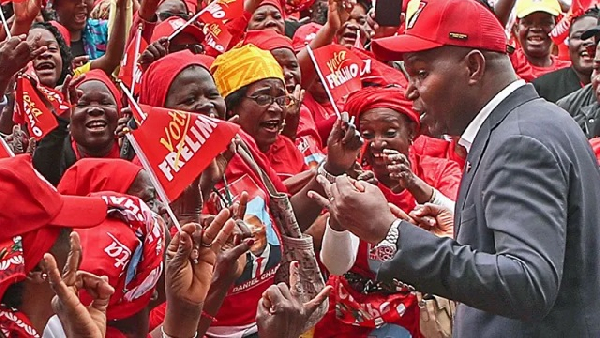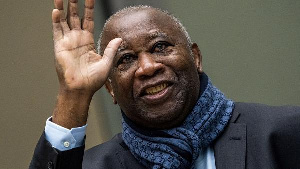10 defining moments in African history everyone needs to know

Africa’s history is filled with accounts of triumph, resilience, and profound transformation.
Spanning thousands of years, the continent has been the cradle of some of the world’s earliest civilizations and the site of intense struggles against colonialism and oppression.
Africa’s past is marked by defining moments that have shaped its destiny and had a significant impact on global history.
Outlined here are ten of these pivotal events, each a testament to Africa’s enduring legacy and its ongoing journey toward a promising future.
1. The Ancient Egyptian Civilization (c. 3100–30 BCE)
The civilization of Ancient Egypt stands as one of the earliest and most influential in human history. With advancements in architecture, writing, and governance, Egypt not only constructed monumental structures like the pyramids but also developed hieroglyphics, one of the earliest writing systems. The governance models, religious beliefs, and cultural achievements of Ancient Egypt have left a lasting legacy, influencing subsequent civilizations in Africa and beyond.
2. The Berlin Conference (1884–1885)
The Berlin Conference was a pivotal moment in African history, where European powers, without any African representation, divided the continent into colonies. This event set the stage for decades of exploitation, with borders drawn arbitrarily, leading to the disruption of ethnic and cultural groups. The impacts of colonialism are still felt today, with many of Africa’s modern borders and conflicts tracing their origins back to this conference.
3. The Ethiopian Victory at the Battle of Adwa (1896)
In a significant triumph against colonial forces, Ethiopia, under the leadership of Emperor Menelik II, successfully repelled an Italian invasion at the Battle of Adwa. This victory preserved Ethiopia’s independence at a time when most of Africa was being colonized. It became a symbol of African resistance and inspired other nations across the continent in their struggles for freedom.
4. The Independence of Ghana (1957)
Ghana’s independence from British colonial rule in 1957 was a watershed moment in African history. Led by Kwame Nkrumah, Ghana became the first sub-Saharan African country to achieve independence, igniting a wave of decolonization across the continent. This event inspired numerous independence movements, leading to the liberation of many African nations in the following decades.
5. The Sharpeville Massacre (1960)
The Sharpeville Massacre in South Africa marked a turning point in the struggle against apartheid. On March 21, 1960, police opened fire on peaceful protesters, killing 69 and injuring many more. The massacre galvanized both national and international opposition to apartheid, leading to increased resistance within South Africa and global sanctions that ultimately contributed to the system’s demise.
6. The End of Apartheid and Nelson Mandela’s Presidency (1994)
The end of apartheid in South Africa and the election of Nelson Mandela as the country’s first Black president in 1994 were monumental events in both African and global history. After decades of racial segregation and oppression, Mandela’s presidency marked the beginning of a new era of democracy, reconciliation, and hope for South Africa, symbolizing the triumph of justice over injustice.
7. The Rwandan Genocide (1994)
In one of the darkest chapters of African history, the Rwandan Genocide saw the systematic killing of over 800,000 Tutsi and moderate Hutus within 100 days. This tragic event underscored the dangers of ethnic conflict and the catastrophic consequences of political manipulation.
8. The Arab Spring and the Fall of Gaddafi (2011)
The Arab Spring, a series of pro-democracy uprisings across North Africa and the Middle East, had significant repercussions for the region. In Libya, the uprising led to the fall of long-time dictator Muammar Gaddafi after four decades of rule. This event significantly altered the political landscape of North Africa, leading to ongoing challenges but also creating opportunities for new governance models in the region.
9. The Ebola Outbreak in West Africa (2014–2016)
The Ebola outbreak in West Africa was one of the deadliest epidemics in recent history, claiming over 11,000 lives. The crisis brought global attention to public health issues in Africa, prompting international collaboration and leading to significant improvements in healthcare infrastructure across the continent. It also underscored the importance of global solidarity in tackling health crises.
10. The #EndSARS Protests in Nigeria (2020)
The #EndSARS movement in Nigeria was a significant moment in recent African history, symbolizing the power of youth activism and the demand for governmental reform. Initially focused on ending police brutality by the Special Anti-Robbery Squad (SARS), the protests grew into a broader call for accountability, justice, and an end to corruption. The movement resonated across Africa and beyond, highlighting the growing influence of social media and youth in shaping political discourse.
These defining moments reflect Africa’s resilience, diversity, and dynamism. They have shaped the continent’s past and continue to influence its future as Africa navigates its role on the global stage.
Source: face2faceafrica.com





